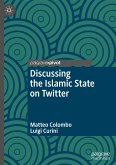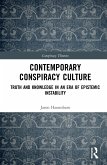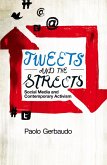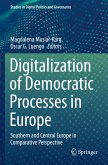Twitter and Elections Around the World
Campaigning in 140 Characters or Less
Herausgeber: Davis, Richard; Just, Marion R.; Holtz-Bacha, Christina
Twitter and Elections Around the World
Campaigning in 140 Characters or Less
Herausgeber: Davis, Richard; Just, Marion R.; Holtz-Bacha, Christina
- Gebundenes Buch
- Merkliste
- Auf die Merkliste
- Bewerten Bewerten
- Teilen
- Produkt teilen
- Produkterinnerung
- Produkterinnerung
Twitter already has become an important electoral communication tool between candidates, parties and their specific constituencies. No serious candidate campaign ignores Twitter, while political party organizations utilize Twitter to communicate with partisans, reinforce supporters, and mobilize voters. Eloquently combining theory and practice, established and rising scholars in the field of political communication have been brought together to provide an essential overview of the influence of Twitter on elections in a comparative perspective.
![E-Diplomacy Capacities within the EU-27: Small States and Social Media E-Diplomacy Capacities within the EU-27: Small States and Social Media]() Alexander TuttE-Diplomacy Capacities within the EU-27: Small States and Social Media27,95 €
Alexander TuttE-Diplomacy Capacities within the EU-27: Small States and Social Media27,95 €![Discussing the Islamic State on Twitter Discussing the Islamic State on Twitter]() Matteo ColomboDiscussing the Islamic State on Twitter33,99 €
Matteo ColomboDiscussing the Islamic State on Twitter33,99 €![Strategic Conspiracy Narratives Strategic Conspiracy Narratives]() Mari-Liis MadissonStrategic Conspiracy Narratives200,99 €
Mari-Liis MadissonStrategic Conspiracy Narratives200,99 €![Contemporary Conspiracy Culture Contemporary Conspiracy Culture]() Jaron HarambamContemporary Conspiracy Culture200,99 €
Jaron HarambamContemporary Conspiracy Culture200,99 €![Tweets and the Streets Tweets and the Streets]() Paolo GerbaudoTweets and the Streets38,99 €
Paolo GerbaudoTweets and the Streets38,99 €![Digitalization of Democratic Processes in Europe Digitalization of Democratic Processes in Europe]() Digitalization of Democratic Processes in Europe95,99 €
Digitalization of Democratic Processes in Europe95,99 €![The Transnational Effects of Social Media in the Arab Spring. The Cases of Egypt and Tunisia The Transnational Effects of Social Media in the Arab Spring. The Cases of Egypt and Tunisia]() Björn SchubertThe Transnational Effects of Social Media in the Arab Spring. The Cases of Egypt and Tunisia17,95 €
Björn SchubertThe Transnational Effects of Social Media in the Arab Spring. The Cases of Egypt and Tunisia17,95 €-
-
-
Hinweis: Dieser Artikel kann nur an eine deutsche Lieferadresse ausgeliefert werden.
- Produktdetails
- Verlag: Routledge
- Seitenzahl: 250
- Erscheinungstermin: 19. September 2016
- Englisch
- Abmessung: 222mm x 145mm x 17mm
- Gewicht: 450g
- ISBN-13: 9781138949348
- ISBN-10: 1138949345
- Artikelnr.: 57050588
- Herstellerkennzeichnung
- Books on Demand GmbH
- In de Tarpen 42
- 22848 Norderstedt
- info@bod.de
- 040 53433511
- Verlag: Routledge
- Seitenzahl: 250
- Erscheinungstermin: 19. September 2016
- Englisch
- Abmessung: 222mm x 145mm x 17mm
- Gewicht: 450g
- ISBN-13: 9781138949348
- ISBN-10: 1138949345
- Artikelnr.: 57050588
- Herstellerkennzeichnung
- Books on Demand GmbH
- In de Tarpen 42
- 22848 Norderstedt
- info@bod.de
- 040 53433511
Marion Just and Christina Holtz-Bacha
Part I: Election Journalism
1. Did Twitter Kill the Boys on the Bus? A Report from the Romney Campaign
in 2012
Peter Hamby
2. Tweeting to the Press? Political Twitter Activity on Offline Media in
the 2013 German Election Campaign
Christina Holtz-Bacha and Reimar Zeh
3. U.S. Political Journalists' Use of Twitter: Lessons From 2012 and a Look
Ahead
Logan Molyneux, Rachel R. Mourao, and Mark Coddington
4. Media Coverage of an Election Campaign on Twitter: The Case of Belgium
in the EU Elections
Evelien D'heer and Pieter Verdegem
Part II: The Audience
5. Communication with Constituents in 140 Characters: How Members of
Congress Used Twitter to Get Out the Vote in 2014
Heather K. Evans
6. South Korean Citizens' Political Information Sharing on Twitter During
the 2012 General Election
Jisue Lee, Hohyon Ryu, Lorri Mon, and Sung Jae Park
Part III: Parties, Candidates, and Campaigns
7. Message Repetition in Social Media: Presidential Candidate Twitter Feeds
in the 2012 U.S. General Election
Kate Kenski and Bethany A. Conway
8. Campaigning on Twitter: The Use of Social Media in the 2014 European
Elections in Italy
Sara Bentivegna and Rita Marchetti
9. Candidate Use of Twitter and the Intersection of Gender, Party, and
Position in the Race: A Comparison of Competitive Male/Female Senate Races
in 2012 and 2014
Marion R. Just, Ann N. Crigler, and Rose A. Owen
10. Who Gets to Say #Are You Better Off? Promoted Trends and Bashtagging in
the 2012 U.S. Presidential Election
Joel Penney
11. Parties, Leaders, and Online Personalization: Twitter in Canadian
Electoral Politics
Tamara A. Small
12. Social Media Coming of Age: Developing Patterns of Congressional
Twitter Use, 2007-2014
David S. Lassen and Leticia Bode
13. From a Tweet to a Seat: Twitter, Media Visibility, and Electoral
Support
Reimar Zeh
Conclusion
Richard Davis
Marion Just and Christina Holtz-Bacha
Part I: Election Journalism
1. Did Twitter Kill the Boys on the Bus? A Report from the Romney Campaign
in 2012
Peter Hamby
2. Tweeting to the Press? Political Twitter Activity on Offline Media in
the 2013 German Election Campaign
Christina Holtz-Bacha and Reimar Zeh
3. U.S. Political Journalists' Use of Twitter: Lessons From 2012 and a Look
Ahead
Logan Molyneux, Rachel R. Mourao, and Mark Coddington
4. Media Coverage of an Election Campaign on Twitter: The Case of Belgium
in the EU Elections
Evelien D'heer and Pieter Verdegem
Part II: The Audience
5. Communication with Constituents in 140 Characters: How Members of
Congress Used Twitter to Get Out the Vote in 2014
Heather K. Evans
6. South Korean Citizens' Political Information Sharing on Twitter During
the 2012 General Election
Jisue Lee, Hohyon Ryu, Lorri Mon, and Sung Jae Park
Part III: Parties, Candidates, and Campaigns
7. Message Repetition in Social Media: Presidential Candidate Twitter Feeds
in the 2012 U.S. General Election
Kate Kenski and Bethany A. Conway
8. Campaigning on Twitter: The Use of Social Media in the 2014 European
Elections in Italy
Sara Bentivegna and Rita Marchetti
9. Candidate Use of Twitter and the Intersection of Gender, Party, and
Position in the Race: A Comparison of Competitive Male/Female Senate Races
in 2012 and 2014
Marion R. Just, Ann N. Crigler, and Rose A. Owen
10. Who Gets to Say #Are You Better Off? Promoted Trends and Bashtagging in
the 2012 U.S. Presidential Election
Joel Penney
11. Parties, Leaders, and Online Personalization: Twitter in Canadian
Electoral Politics
Tamara A. Small
12. Social Media Coming of Age: Developing Patterns of Congressional
Twitter Use, 2007-2014
David S. Lassen and Leticia Bode
13. From a Tweet to a Seat: Twitter, Media Visibility, and Electoral
Support
Reimar Zeh
Conclusion
Richard Davis








